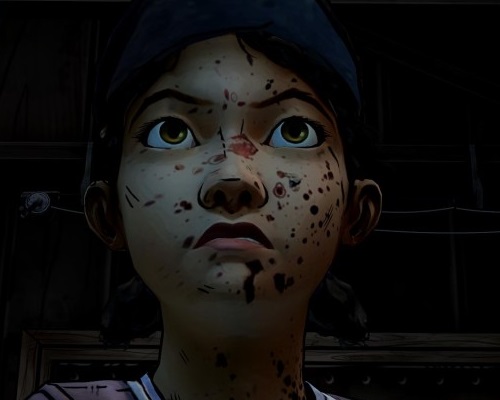When Telltale completed Season One of its The Walking Dead in mid 2012, the clear question emerged: how could the sequel be better? The Walking Dead: Season One was heralded as one of the best games of the year, with many people dubbing it the greatest adventure game ever made. Now, whether that second part is true or not is a debate for another day. Regardless, Telltale had set the bar high. The company had successfully rebounded from the edge of collapse (remember Jurassic Park: the Game?) and had climbed into more mainstream gamer attention. Unlike the original, which came out of nowhere, The Walking Dead: Season Two would have expectations. In meeting these exceptions, Telltale had to create something both incredible and unlikely: a zombie story that did not sound too familiar. The succeeded with a simple twist in the traditional story-arch. An idea that has never been fully utilized in the genre before: a child protagonist.
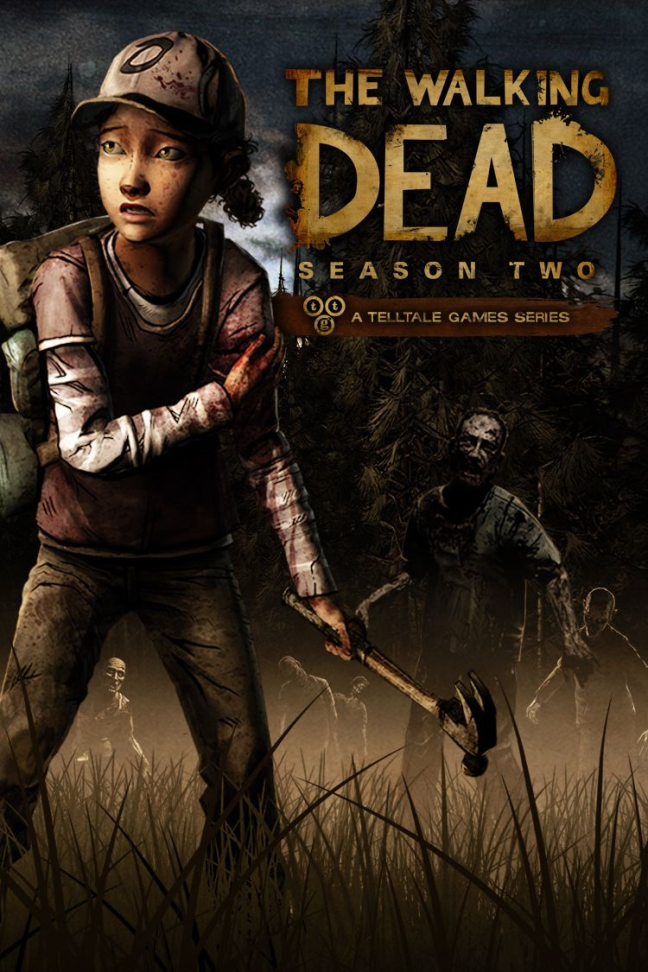
This is not to say that children have not played a large role in the stories of zombie apocalypse before. From Carl on AMC’s The Walking Dead to Ellie in The Last of Us, children have been playing important supporting roles for sometime. Yet the main protagonist remained an empowered adult, with the child either functioning primarily as the embodiment of innocence, conscience, or some other ‘pure’ element of humanity. At eleven years old, Clementine breaks the mold that she had served in Season One.
Of course, a child protagonist poses problems – namely in the aspect of perspective storytelling, or point of view. Children do not experience the world in the same way that adults do. They live different lives, are ignorant of many issues, and concerned with priorities that not all adults would relate to. It was the triumph of Season Two‘s storytelling (headed by Nick Breckon and Andrew Grant) that allowed Clementine to be a relatable protagonist, while still maintaining the believable personality of a child. In discussing Clementine, the strengths and weaknesses of her portrayal must be observed.
WHERE THEY FALTERED
Since the flaws are so few, they will be highlighted first. As mentioned, problems can emerge with an 11-year old protagonist, namely: just how empowered are they? In a zombie apocalypse, why would the words of a child matter against bigger, stronger human beings? For the most part, Telltale handles this challenge well. Clementine is depicted as friendly and mature while having the all-important ability to keep her head in a crisis. The player sees the adult supporting characters appreciating these traits and trusting Clementine, which leads them to confide in her. Clementine is then able to use the influence she attains to either subtly or directly influence the group. She never brute forces any situation, and when a character does not want to listen to her – there’s little she can do about it.
That said, there was one event early on where the illusion of child protagonist is damaged. In the first episode, “All That Remains“, Clementine has an encounter with a grown woman named Rebecca. Here is the encounter:
There are several reasons why I personally do not believe this scene holds up at all with the nature of narrative perspective. It mainly comes down to the overly aggressive yet frightened attitude expressed by Rebecca. Clementine is a small, young girl who has just entered the group. She can pose no physical challenge and, at that point, it is very difficult to see her having a place of influence. Rebecca’s reaction is too strong and the lack of subtly causes the player to almost scoff at the encounter. This sequence would have fit much better if Season One‘s protagonist, Lee was still the player character. However, that reaction to a child is more laughable than tension-building.
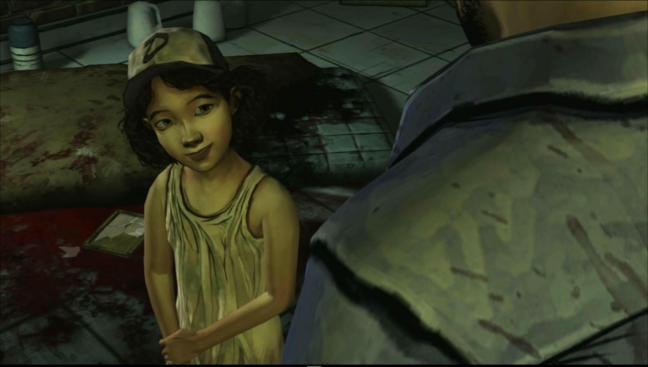
Quick note – that scene has another problem as Rebecca believes Clementine to be a spy for Carver, a man they are all fleeing. Yet, as Rebecca was a former member of Carver’s group… she would (and later does) know all his people. Another reason why this scene is more contrived than anything else.
WHERE THEY SUCCEEDED
Without spoiling the entirety of The Walking Dead: Season Two‘s plot, the writers at Telltale essentially made it a coming-of-age story. Throughout the course of the story-arch, Clementine is exposed to three (or really two) supporting characters who serve to showcase wildly different mentors. Each believes that Clementine must behave a certain way if she wants to live in a post-apocalyptic world. This style of character interaction allows the player a very clever way to look at the consequences of action, and how actions over time shape an individual’s identity.
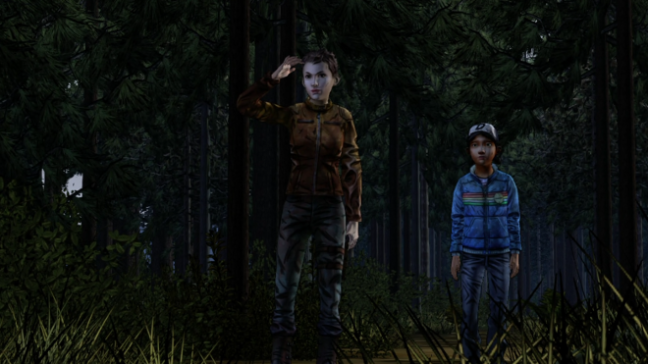
In addition to this, Clementine’s personality has already been greatly influenced by Lee during the events of Season One. There are many moments where the player, like Clementine, find themselves asking “What would Lee do in this situation?” It is a brilliant piece on the importance of influence and how no one grows up alone. Throughout most of the game, the player feels like they are making a human being. Clementine already developed significantly in Season One, but Season Two finishes her growth arc. By the end, it is very clear what type of person Clementine has become – and the player feels like they had a strong role in that act of creation.
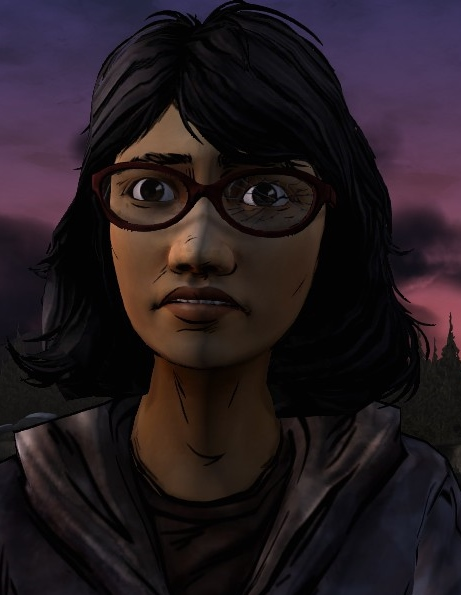
Yet through it all, Clementine’s innocence and childish ignorance is touched upon. There is perhaps no more memorable scene than one of the final moments of ease in Season Two‘s story. Everyone is relaxing around a fire and joking around (needless to say, alcohol is involved). The subject of conversation turns to sex and everyone suddenly becomes very cautious around Clementine, who defies them by saying that she knows they’re talking about “kissing stuff.” This is not only a great moment in managing tension but a wonderful reminder of who Clementine is. She has had to grow up a lot to survive in a harsh world, but still maintains her child disinterest in anything to do with sex.
The Walking Dead: Season Two surpasses its predecessor with a unique protagonist and a very well-structured storyline. Is it perfect: no, but it is close. There is now a new question to be asked: how is Season Three going to top this?
